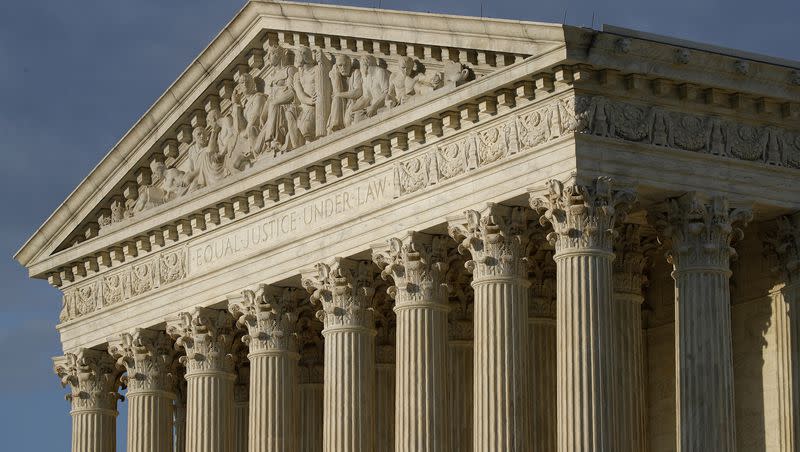Supreme Court will hear abortion pill case

The Supreme Court on Wednesday announced that it will hear a high-profile battle over abortion medication and attempt to resolve one of the major conflicts that arose after it overturned Roe v. Wade last year.
In Food and Drug Administration v. Alliance for Hippocratic Medicine, which has been consolidated with the closely related Danco Laboratories v. Alliance for Hippocratic Medicine, the justices will decide whether a pill that’s used to induce abortion, mifepristone, will remain under the tighter restrictions put in place by lower court judges after a group of abortion opponents challenged its use.
“The justices will hear appeals from the Biden administration and the maker of the drug mifepristone asking the high court to reverse an appellate ruling that would cut off access to the drug through the mail and impose other restrictions, even in states where abortion remains legal. The restrictions include shortening from the current 10 weeks to seven weeks the time during which mifepristone can be used in pregnancy,” The Associated Press reported.
The Supreme Court already weighed in on the case earlier this year in an emergency order, which undid the lower court’s effort to fully block access to mifepristone as the legal battle plays out, as the Deseret News previously reported.
The justices will now be fully briefed on the case and hear oral arguments this spring, with a decision expected by the end of June.
Related
Supreme Court religion cases
Food and Drug Administration v. Alliance for Hippocratic Medicine was one of four faith-related cases waiting in the wings when the Supreme Court began its current term in October. The cases were notable because the justices had not yet agreed to weigh in on a religion-focused debate, breaking from the pattern established over the past several years, as the Deseret News previously reported.
On Monday, the court declined the opportunity to hear two of the cases: Tingley v. Ferguson, which was brought by a Christian therapist seeking changes to Washington state’s conversion therapy ban, and Vitagliano v. County of Westchester, which centered on a Catholic woman challenging a New York law that establishes a protective zone around abortion clinics. Because the justices will not get involved, lower court rulings upholding both laws will remain in place.
The Supreme Court could still agree to hear Missouri Department of Corrections v. Finney, which is about the role religion plays in the selection of a jury.
There is also time for additional religious individuals or groups to request help from the Supreme Court and have their case heard this term.
Jan. 6 case involving Trump
Also on Wednesday, the Supreme Court agreed to hear a case connected to the Jan. 6, 2021, protests at the U.S. Capitol and to former President Donald Trump’s alleged role in efforts to overturn President Joe Biden’s election victory.
The case, Joseph Fischer v. U.S., was brought by a man charged with “obstructing an official proceeding” and asks whether the 2002 law cited in his case and hundreds of others like it, including an ongoing one involving Trump, is being properly applied, according to Bloomberg Law.
By agreeing to hear the case, the Supreme Court could enable Trump’s legal team to successfully argue that his federal case needs to be pushed back until after the 2024 presidential election, Bloomberg Law reported. A hearing in that case is currently scheduled for March 4.

